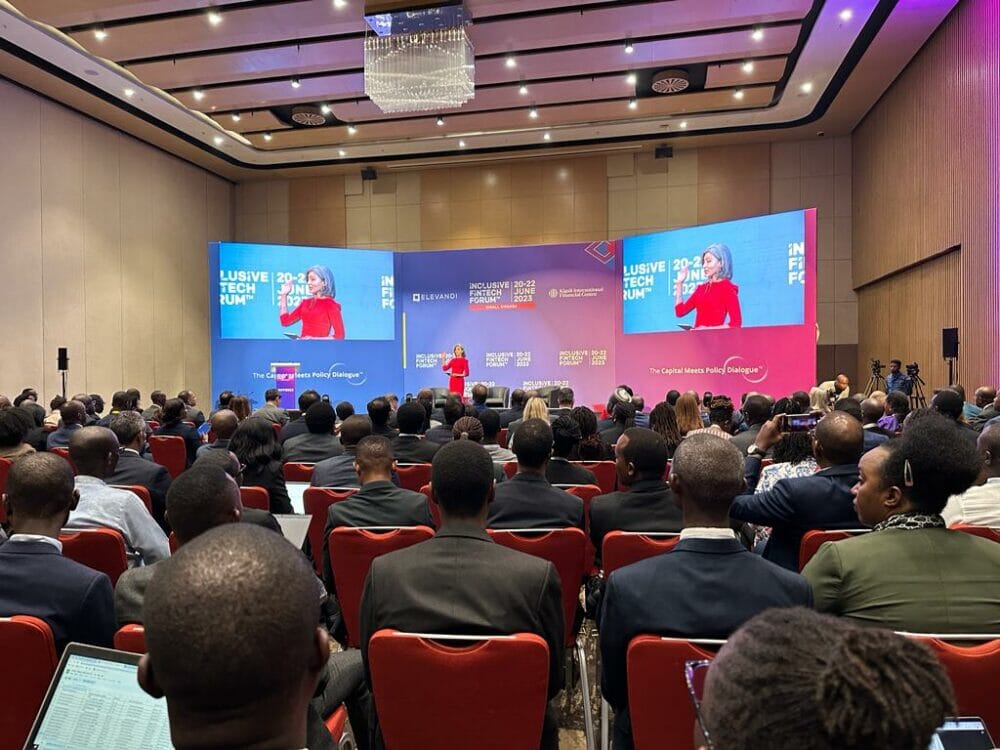Rwanda and Singapore, unlikely colleagues on a fintech future
The two countries are on a combined mission to turn Africa's fintech opportunity into an engine of economic growth and social inclusion.
Resonate Global has just returned from the Inclusive Fintech Forum in Kigali, Rwanda.
Two vastly different yet curiously similar worlds met there: Rwanda, as forum host, through its Kigali International Finance Centre, and Singapore, whose Monetary Authority of Singapore is a key backer of the event.
You’d think this an odd combination: the spotless Asian nation state that sets the gold standard for efficiency in financial services, and a small African country that many people internationally chiefly associate with a genocide in 1994.
But you’d be surprised. There’s more in common between the two than you might think.
Both are dwarfed by their neighbours in size and population: Singapore has five million people, Rwanda 13 million. Singapore’s neighbour is 270 million-strong Indonesia. Meanwhile, two of Rwanda’s four neighbours, the Democratic Republic of the Congo and Tanzania, have 160 million between them.
Each must find ways to take their skills across borders to be able to truly thrive.
Both have a reputation for being the cleanest and safest countries in their region. And both are firm believers in the power of digital technology in banking as an enabler of economic growth and social inclusion.
This is why when you come to Kigali, you hear – a lot – that it’s the Singapore of Africa.
No doubt there’s a geopolitical twist to this, which made Singapore take it so seriously: Elevandi, a conference business that grew from the Monetary Authority of Singapore and its vast Fintech Festival, is the organiser. Its speakers who flew out include CEO Ravi Menon and chief fintech officer Sopnendu Mohanty.
But whatever the imperative, the two nations have been aligned on their messages. Chief among them: regulation must be designed to encourage innovation.
Africa’s fintech opportunity
This is beyond dispute. The 15-24 age demographic is expected to grow 42% by 2030.
Bank branches aren’t going to reach all of them – there are 4.5 branches per 100,000 people in Sub-Saharan Africa, compared to 30 in the US. But when Africa’s mobile penetration is 80% in a population that’s 65% underbanked or unbanked at all, then it’s already clear that digitally-enabled services are the answer.
To an extent, this was already evident. Some 33% of adults in Sub-Saharan Africa have a mobile money account.
Depending on your definition, an extraordinary 70% of 2021 global mobile money transactions, mainly person-to-person transactions, took place in Africa. Kenya’s M-Pesa system is, in some sense, the place where the whole idea of mobile money was first rolled out at genuine scale.
But there are important contexts to consider. Kenya, South Africa, Nigeria and perhaps Egypt totally dominate the picture. The other 50 African nations don’t.
There were 21 neobanks in Africa by 2021 but all but four are in South Africa and Nigeria.
“One of the key messages that has come from the event is the urgency for some harmony in regulation.”
You can see why Rwanda wants to champion this: any startup that gains traction here exhausts its market pretty quickly. But regional expansion requires navigating elaborate and divergent legal codes elsewhere.
Another is the need for capital. Africa proudly boasts seven unicorns, but is Nasdaq really a natural home for them?
Both equity and, in particular, local currency debt markets need to develop further to give fintechs the opportunity to fund in their home markets. Pension funds, nascent but powerful in most of Africa, need to be persuaded to invest domestically in growth companies.
There’s a human talent challenge too. As Tidjane Thiam, the former CEO of Credit Suisse and now Board Chairman of Rwanda Finance, told conference delegates: “the number one driver in the world is innovation. It’s not raw materials, it’s intellectual capital. And that’s good news, as it’s where we are most equal as Africans. I do believe that brainpower is equally allocated on the planet.”
But what about the opportunity of using that brainpower? How to channel it into the roles that are needed for a digital future for Africa?
The messages veered between two poles: optimism about the future, and tempered realism about how to get there. One thing’s clear. Fintechs can be a gamechanger for African economies if the correct regulatory environments exist for them to develop.






